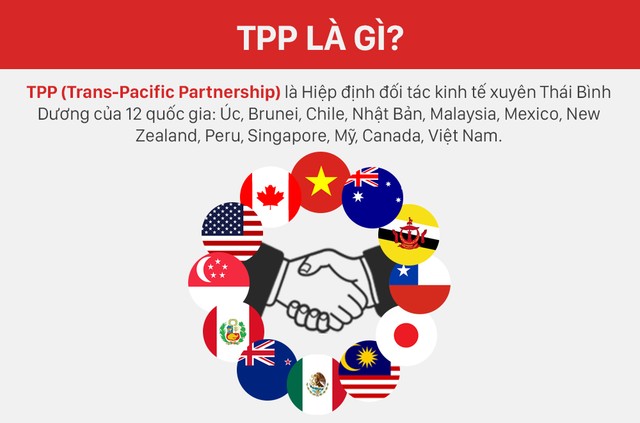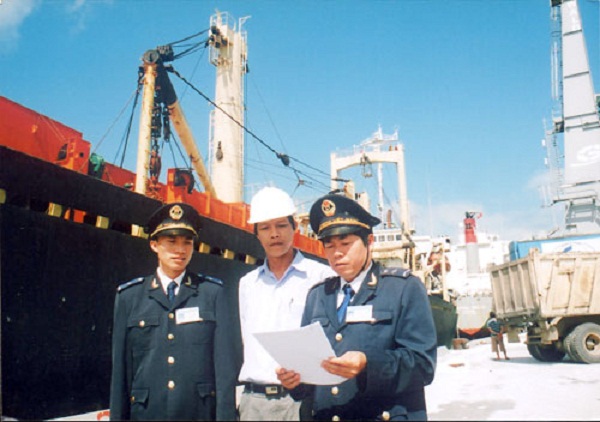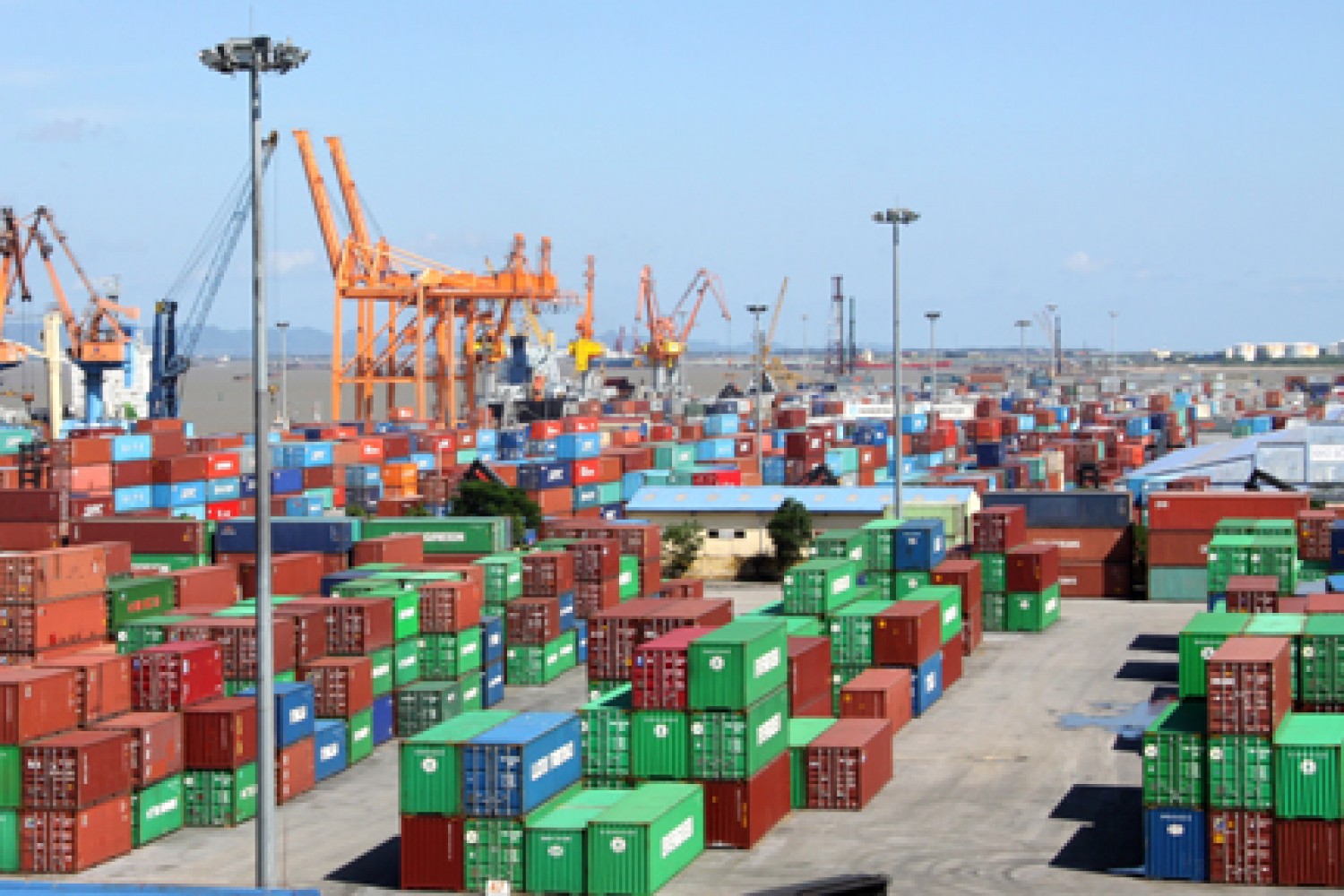TPP - Chapter 29 - Exceptions and General Provisions
Chapter 29 of the TPP Agreement stipulates the exceptions in applying the TPP Agreement and the general provisions on information disclosure, traditional knowledge, expressions of folklore, and genetic resources.
CHAPTER 29
EXCEPTIONS AND GENERAL PROVISIONS
Section A: Exceptions
Article 29.1: General Exceptions
-
Within the scope of Chapter 2 (National Treatment and Market Access for Goods), Chapter 3 (Rules of Origin and Origin Procedures), Chapter 4 (Textiles and Apparel), Chapter 5 (Customs Administration and Trade Facilitation), Chapter 7 (Sanitary and Phytosanitary Measures), Chapter 8 (Technical Barriers to Trade) and Chapter 17 (State-Owned Enterprises and Designated Monopolies), Article XX of the GATT 1994 and its Notes, as amended, are incorporated into and form an integral part of this Agreement.
-
The Parties recognize that the measures referred to in Article XX(b) of the GATT 1994 include measures necessary to protect human, animal, or plant life or health, and Article XX(g) of the GATT 1994 applies to measures relating to the conservation of exhaustible living and non-living natural resources.
-
Within the scope of Chapter 10 (Cross-Border Trade in Services), Chapter 12 (Temporary Entry for Business Persons), Chapter 13 (Telecommunications), Chapter 14 (Electronic Commerce), and Chapter 17 (State-Owned Enterprises and Designated Monopolies), subparagraphs (a), (b), and (c) of Article XIV of the GATS, as amended, are incorporated into and form an integral part of this Agreement. The Parties recognize that the measures referred to in Article XIV(b) of the GATS include measures necessary to protect human, animal, or plant life or health.
-
Nothing in this Agreement shall prevent a Party from adopting or maintaining measures, including the imposition or increase of tariffs, permitted under a ruling issued by the WTO Dispute Settlement Body or taking action under a decision adopted by a panel under a free trade agreement to which both the Party taking the action and the Party against whom the action is taken are party.
Article 29.2: Security Exceptions
Nothing in this Agreement shall:
(a) require a Party to furnish or allow access to any information which it considers to be contrary to its essential security interests; or
(b) prevent a Party from taking any action which it considers necessary for the protection of its essential security interests or the fulfillment of its international peace and security obligations.
Article 29.3: Temporary Safeguard Measures
-
Nothing in this Agreement shall be construed to prevent a Party from adopting or maintaining restrictive measures concerning payments or transfers for current transactions in the event of serious balance-of-payments and external financial difficulties or threat thereof.
-
Nothing in this Agreement shall be construed to prevent a Party from adopting or maintaining restrictive measures concerning payments or transfers for capital transactions:
(a) in the event of serious balance-of-payments and external financial difficulties or threat thereof; or
(b) in cases where, in exceptional circumstances, payments or transfers relating to capital movements cause or threaten to cause serious economic management difficulties.
- The safeguard measures adopted or maintained under paragraphs 1 and 2 shall:
(a) be consistent with Articles 9.4 (National Treatment), 9.5 (Most-Favored-Nation Treatment), 10.3 (National Treatment), 10.4 (Most-Favored-Nation Treatment), 11.3 (National Treatment), and 11.4 (Most-Favored-Nation Treatment);
(b) be consistent with the Articles of Agreement of the International Monetary Fund;
(c) avoid unnecessary damage to the commercial, economic, and financial interests of the other Party;
(d) not exceed those necessary to address the circumstances described in paragraphs 1 or 2;
(e) be temporary and be phased out progressively as the situation under paragraphs 1 or 2 improves, and in any event not exceed a period of 18 months, however, in exceptional circumstances, a Party may extend the safeguard measure for a further period of one year, by notifying in writing to the other Parties within 30 days from the date of extension; if after consultations, more than half of the members do not agree to the extension of the measure in accordance with subparagraphs (c), (d), and (h) within 30 days from the date of notification, the Party maintaining the restriction shall remove the restriction or adjust the measure consistent with subparagraphs (c), (d), and (h) and seek further review by the other Parties within 90 days from the date of the request for extension;
(f) be consistent with Article 9.7 (Expropriation and Compensation);
(g) not affect the ability of investors to earn a return in the territory of the restricting Party relating to the restricted assets in case of restrictions concerning capital movements; and
(h) not be used to avoid necessary macroeconomic adjustments.
-
The safeguard measures referred to in paragraphs 1 and 2 shall not apply to payments or transfers related to foreign direct investment.
-
A Party shall endeavor to adopt or maintain safeguard measures based on prices under paragraphs 1 or 2 and if such safeguard measures are not price-based, the Party shall explain the reasons for the use of quantitative restrictions when it notifies the other Parties of the safeguard measures.
-
For trade in goods, Article XII of the GATT 1994 and the Understanding on Balance of Payments Provisions of GATT 1994, as amended, are incorporated into and form part of this Agreement. Any safeguard measures adopted or maintained under this paragraph shall not impair the benefits accorded to other Parties under this Agreement as compared to the benefits accorded to a non-TPP country.
-
A Party adopting or maintaining safeguards under paragraphs 1, 2, or 6 shall:
(a) notify in writing to the other Parties of the safeguards, including any modifications thereto, along with the reasons for their imposition, within 30 days from the date of imposition;
(b) provide a schedule or plan of conditions necessary for the removal of the safeguard measures as soon as possible;
(c) promptly publish the safeguard measures; and
(d) promptly consult with the other Parties to review the measures imposed or maintained.
(i) concerning capital movements, promptly respond to a request for consultations about the safeguard measures of a Party, provided that the consultations are held within the confines of this Agreement;
(ii) concerning restrictions on current transactions, if consultations about the measures imposed do not take place within the framework of the WTO Agreement, the Party concerned shall promptly consult with the interested Parties.
Article 29.4: Tax Measures
- For the purposes of this Article:
The designated authority is:
(a) for Australia, the Treasurer or the authorized representative of the Treasurer;
(b) for Brunei Darussalam, the Minister of Finance or the authorized representative of the Minister;
(c) for Canada, the Assistant Deputy Minister of Tax Policy, Department of Finance;
(d) for Chile, the Undersecretary of Finance (Subsecretario de Hacienda);
(e) for Japan, the Ministers of Foreign Affairs and Finance;
(f) for Malaysia, the Minister of Finance or the authorized representative of the Minister;
(g) for Mexico, the Minister of Finance and Public Credit (Secretario de Hacienda y Credito Publico);
(h) for New Zealand, the Commissioner of Inland Revenue or the authorized representative of the Commissioners;
(i) for Peru, the Director General for International Economic Affairs, Competition and Productivity of the Ministry of Economy and Finance (Director de Asuntos de Economia Internacional, Competencia y Productividad del Ministerio de Economia y Finanzas);
(j) for Singapore, the Senior Director of Tax Policy, Ministry of Finance;
(k) for the United States, the Assistant Secretary of the Treasury (tax policy); and
(l) for Vietnam, the Minister of Finance,
or any successor of the designated authorities notified in writing to the other Parties;
a tax convention is a convention for the avoidance of double taxation or other international taxation agreements; and
taxes and tax measures include excise duties, but do not include:
(a) "customs duties" as defined in Article 1.3 (General Definitions); or
(b) measures listed in subparagraphs (b) and (c) of that definition.
-
Except as provided in this Article, nothing in this Agreement shall apply to tax measures.
-
The provisions of this Agreement shall not affect the rights and obligations of the Parties under any tax convention. In the event of any inconsistency between this Agreement and any such tax convention, that convention shall prevail.
-
In cases where two or more Parties are party to a tax convention and there is an inconsistency between this Agreement and that tax convention, the matter shall be referred to the designated authorities of the Parties involved. The designated authorities of the Parties shall determine the existence and level of the inconsistency within six months from the date of the request for referral. This period may be extended up to a maximum of 12 months from the date of request if the designated authorities agree. Before the expiration of the six-month period or any agreed period, the Parties shall not apply measures that would give rise to concerns under Chapter 28 (Dispute Settlement) or Article 9.18 (Submission of a Claim to Arbitration). Any panel or tribunal constituted to resolve a dispute concerning a tax measure shall accept as binding any decision of the designated authorities of the Parties under this paragraph.
-
Notwithstanding paragraph 3:
(a) Article 2.3 (National Treatment) and other provisions of this Agreement as they may apply shall apply to tax measures to the same extent as Article III of the GATT 1994; and
(b) Article 2.16 (Export Duties, Taxes or Other Charges) shall apply to tax measures.
- To the extent relevant:
(a) Article 10.3 (National Treatment) and Article 11.6.1 (Cross-Border Services) shall apply to taxation measures on income, on capital gains, on the taxable capital of corporations, or on the value of an investment or property (but not on the transfer of that investment or property), relating to the purchase or consumption of particular services, provided that the application of this subparagraph shall not prevent a Party from requiring that revenues or contributions of a pension trust, retirement plan, pension fund, or annuity contract be subject to such taxation;
(b) Article 9.4 (National Treatment), Article 9.5 (Most-Favored-Nation Treatment), Article 10.3 (National Treatment), Article 10.4 (Most-Favored-Nation Treatment), Article 11.3 (National Treatment), Article 11.4 (Most-Favored-Nation Treatment), Article 11.6.1 (Cross-Border Trade in Services), and Article 14.4 (Non-Discriminatory Treatment of Digital Products) shall apply to all tax measures, except for taxes on income, on capital gains, on the taxable capital of corporations, on the value of an investment or property (but not the transfer of the investment or property), or on inheritances, estates, gifts, and generation-skipping transfers; and
(c) Article 14.4 (Non-Discriminatory Treatment of Digital Products) shall apply to tax measures on income, on capital gains, on the taxable capital of corporations, or on the value of an investment or property (but not on the transfer of that investment or property), relating to the purchase or consumption of particular digital products, provided that this subparagraph shall not prevent a Party from requiring that revenues or contributions of a retirement trust, retirement plan, pension fund, or annuity contract be invested in particular digital products or in any particular way within its territory.
-
Article 9.9.2 (Performance Requirements), 9.9.3 and 9.9.5 shall apply with respect to tax measures to the extent set forth in paragraph 3 and shall not affect rights and obligations of the Parties under paragraph 5.
-
Article 9.7 (Expropriation and Compensation) shall apply to tax measures. However, no investor may invoke Article 9.7 (Expropriation and Compensation) as the basis for a claim unless it has been determined that the measure constitutes an expropriation under this Agreement. An investor that seeks to invoke Article 9.7 (Expropriation and Compensation) shall first request in writing that the designated authorities of the Party of the investor (the Party of the investor) and the Party against which the claim is made determine whether the measure constitutes an expropriation. If the designated authorities do not agree to make a determination, or if after agreeing to consider the matter do not agree that the measure does not constitute an expropriation within six months of the request, the investor may submit its claim to arbitration under Article 9.18 (Submission of a Claim to Arbitration).
-
Nothing in this Agreement shall prevent Singapore from adopting tax measures to achieve its public policy objectives, provided that such measures do not excessively restrict trade.
Article 29.5: Tobacco Control Measures
A Party may deny the benefits of Part B of Chapter 9 (Investment) with respect to claims against its tobacco control measures. Such claims shall not proceed to arbitration under Part B of Chapter 9 (Investment) if the Party invoked denies the benefits. If a Party does not deny the benefits with respect to such a claim before the arbitration proceeding under Part B of Chapter 9 (Investment) begins, it may do so during the course of the arbitration proceeding. For clarity, if a Party denies the benefits with respect to such a claim, the claim shall be dismissed.
Article 29.6: Treaty of Waitangi
-
Provided that the safeguard measures are not used as a means of arbitrary or unjustifiable discrimination between persons of the other Parties or as a disguised restriction on trade in goods, services, and investment, nothing in this Agreement shall prevent New Zealand from adopting measures it deems necessary to accord favorable treatment to Maori in terms of safeguarding their rights, including in fulfillment of its obligations under the Treaty of Waitangi.
-
The Parties agree that the interpretation of the Treaty of Waitangi, including the nature of the rights and obligations arising thereunder, is not subject to the dispute resolution provisions of this Agreement. For greater certainty, Chapter 28 (Dispute Settlement) shall not apply to this Article. A panel may be convened under Article 28.7 (Establishment of a Panel) to determine whether a measure implementing this provision is consistent with a Party's rights and obligations under this Agreement.
Section B: General Provisions
Article 29.7: Disclosure of Information
Nothing in this Agreement shall be construed as requiring a Party to furnish or allow access to any information the disclosure of which it determines to be contrary to the public interest, its laws, or which would impede law enforcement, or otherwise adversely affect legitimate commercial interests of particular enterprises, public or private.Article 29.8: Traditional Knowledge, Expressions of Folklore and Genetic Resources
Within the scope of the international obligations of the Parties, each Party may establish appropriate measures to respect, preserve, and promote traditional knowledge and expressions of folklore.
Note:
-
Within the scope of Chapter 17 (State-Owned Enterprises and Monopolies), Article XX of GATT 1994 (with explanatory footnotes), as amended, forms an integral part of this Agreement, relating only to measures that a Party (including through the application of state-owned enterprises or monopolies) imposes affecting the production, sale, or purchase of goods or affecting activities related to the production of goods.
-
This clause does not affect the classification of a digital product as either a good or a service.
-
Within the scope of Chapter 17 (State-Owned Enterprises and Monopolies), Article XIV of GATS (and accompanying footnotes) as appropriately amended, forms an integral part of this Agreement, relating only to measures that a Party (including through the application of state-owned enterprises or monopolies) imposes affecting the sale of goods and services or affecting activities related to the sale of goods and services.
-
Without prejudice to the general interpretation of Article 9.4 (National Treatment), Article 9.5 (Most-Favored-Nation Treatment), Article 10.3 (National Treatment), Article 10.4 (Most-Favored-Nation Treatment), Article 11.3 (National Treatment), and Article 11.4 (Most-Favored-Nation Treatment), the fact that an investor of different residence is subject to different safeguard measures under Clause 1 or 2 does not imply that such measures are inconsistent with Article 9.4 (National Treatment), Article 9.5 (Most-Favored-Nation Treatment), Article 10.3 (National Treatment), Article 10.4 (Most-Favored-Nation Treatment), Article 11.3 (National Treatment), and Article 11.4 (Most-Favored-Nation Treatment).
-
It should be noted that the safeguard measures listed in Clause 1 or 2 can be in the form of non-discriminatory regulations developed and applied by a Party to protect legitimate public welfare objectives as outlined in Annex 9B(3)(b) (Expropriation).
-
The term "restricted property" in this point refers exclusively to property invested within the territory of the Party imposing the restriction by an investor of a Party and is restricted from being transferred out of the territory of the Party imposing the restriction.
-
For the purposes of this Article, "foreign direct investment" means a type of investment made by an investor of a Party in the territory of another Party, through which the investor gains ownership, control, or significant influence over the management of an enterprise or another type of direct investment intended to establish a lasting relationship. For example, owning at least 10 percent of the voting shares of an enterprise for at least 12 months is generally considered foreign direct investment.
-
To support the consultation process between the designated Authorities of the relevant Parties, Japan’s point of contact is the Ministry of Finance.
-
This Article does not affect the methods for determining the value of investments or assets pursuant to the corresponding Laws of the Parties.
-
This Article does not affect the methods for determining the value of investments or assets under the respective laws of the Parties.
-
This point must be interpreted by referencing the notes to Article XIV(d) of GATS if this Article applies only to services or types of direct taxation.
-
For clarity, this Article does not affect: (i) the application of Article 9.14 (Denial of Benefits); or (ii) a Party’s right concerning tobacco control measures under Chapter 28 (Dispute Settlement).
-
A tobacco control measure is a measure adopted by a Party related to the production, consumption of manufactured tobacco products (including products made from or derived from tobacco), distribution, labeling, packaging, advertising, marketing, promotion, sale, or use, as well as enforcement measures such as inspection, record-keeping, and reporting requirements. For clarity, a measure applied to loose tobacco fibers not owned by the tobacco manufacturer or that are not raw materials of manufactured tobacco is not considered a tobacco control measure.
TABLE OF CONTENTS
TPP - Chapter 01 - General Provisions and Definitions
TPP - Chapter 02 - National Treatment and Market Access for Goods
TPP - Chapter 03 - Rules of Origin and Origin Procedures
TPP - Chapter 04 - Textiles and Apparel
TPP - Chapter 05 - Customs Administration and Trade Facilitation
TPP - Chapter 06 - Trade Remedies
TPP - Chapter 07 - Sanitary and Phytosanitary Measures
TPP - Chapter 08 - Technical Barriers to Trade
TPP - Chapter 10 - Cross-Border Trade in Services
TPP - Chapter 11 - Financial Services
TPP - Chapter 12 - Temporary Entry for Business Persons
TPP - Chapter 13 - Telecommunications
TPP - Chapter 14 - Electronic Commerce
TPP - Chapter 15 - Government Procurement
TPP - Chapter 16 - Competition Policy
TPP - Chapter 17 - State-Owned Enterprises and Designated Monopolies
TPP - Chapter 18 - Intellectual Property
TPP - Chapter 20 - Environment
TPP - Chapter 21 - Cooperation and Capacity Building
TPP - Chapter 22 - Competitiveness and Business Facilitation
TPP - Chapter 23 - Development
TPP - Chapter 24 - Small and Medium-Sized Enterprises
TPP - Chapter 25 - Regulatory Coherence
TPP - Chapter 26 - Transparency and Anti-Corruption
TPP - Chapter 27 - Administrative and Institutional Provisions
TPP - Chapter 28 - Dispute Settlement
TPP - Chapter 29 - Exceptions and General Provisions
- Cases of land rent exemption and reduction under the latest regulations in Vietnam
- Economic infrastructure and social infrastructure system in Thu Duc City, Ho Chi Minh City
- Regulations on ordination with foreign elements in religious organizations in Vietnam
- Increase land compensation prices in Vietnam from January 1, 2026
- Determination of land compensation levels for damage during land requisition process in Vietnam
- Who is permitted to purchase social housing according to latest regulations in Vietnam?
-

- TPP - Chapter 01 - General Provisions and Definitions
- 12:10, 11/07/2024
-

- TPP - Chapter 05 - Customs Administration and ...
- 12:10, 11/07/2024
-

- TPP - Chapter 04 - Textile and apparel goods
- 12:10, 11/07/2024
-

- TPP - Chapter 08 - Technical Barriers to Trade
- 12:10, 11/07/2024
-

- TPP - Chapter 07 - Sanitary and Phytosanitary ...
- 12:10, 11/07/2024
-

- Notable new policies of Vietnam effective as of ...
- 16:26, 11/04/2025
-
.Medium.png)
- Notable documents of Vietnam in the previous week ...
- 16:21, 11/04/2025
-
.Medium.png)
- Notable documents of Vietnam in the previous week ...
- 16:11, 02/04/2025
-
.Medium.png)
- Notable new policies of Vietnam to be effective ...
- 16:04, 02/04/2025
-
.Medium.png)
- Notable new policies of Vietnam effective from ...
- 14:51, 21/03/2025
 Article table of contents
Article table of contents
